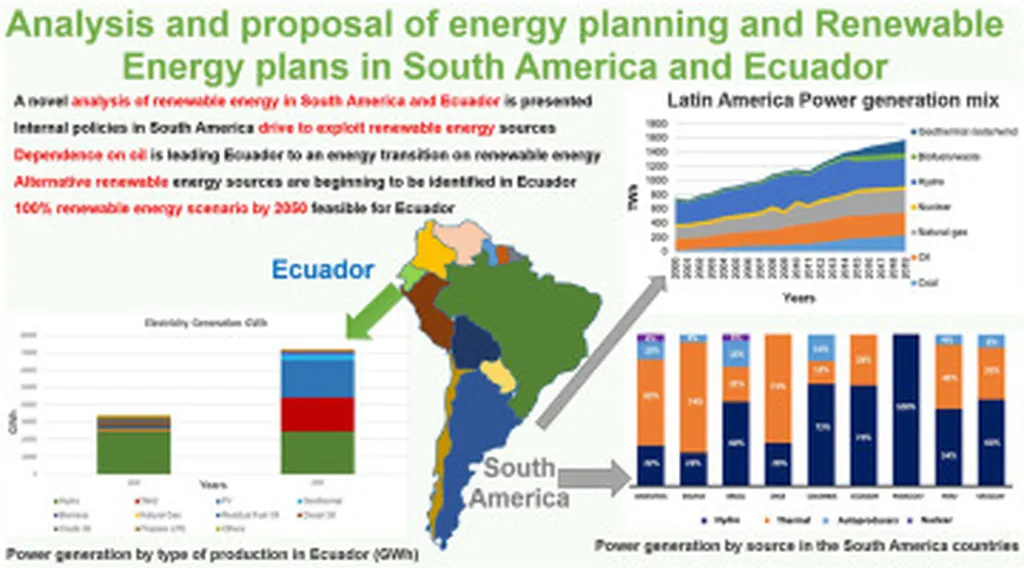In the ever-evolving energy sector, the quest for efficient and cost-effective power generation is relentless. A recent study published in the journal *Energies* offers a fresh perspective on economic dispatch in hybrid generation systems, particularly under energy limitation scenarios. The research, led by Jorge Cadena-Albuja from the Department of Electrical Engineering at Universidad Politécnica Salesiana in Quito, Ecuador, delves into the complexities of integrating renewable energy sources into traditional power systems.
The study focuses on the short-term economic dispatch problem, a critical aspect of power system operation that aims to minimize the cost of generation while meeting demand. Cadena-Albuja and his team examined a hybrid generation system comprising hydroelectric, thermoelectric, photovoltaic solar, and wind power plants. The inclusion of renewable energy sources adds a layer of complexity due to their inherent variability. “The performance of solar and wind power plants is highly dependent on solar radiation, wind speed, and ambient temperature, which are stochastic in nature,” Cadena-Albuja explains. To tackle this variability, the researchers employed the Monte Carlo method to estimate the behavior of these resources over the planning horizon.
The study’s innovative approach lies in its comparative analysis of different optimization techniques. The team formulated the hydrothermal dispatch optimization problem and solved it using heuristic and metaheuristic approaches, with a particular emphasis on the Differential Evolution algorithm. This algorithm, known for its robustness and efficiency, was pitted against other optimization techniques to evaluate its performance under energy limitation scenarios.
The findings of this research have significant implications for the energy sector. By comparing various generation scenarios, the study provides valuable insights into the influence of renewable energy-based power plants on the overall operating cost of an electric power system. “Our analysis shows that the integration of renewable energy sources can lead to substantial cost savings, but it also highlights the need for advanced optimization techniques to manage the inherent variability of these resources,” Cadena-Albuja notes.
The study’s relevance extends beyond academic circles, offering practical insights for energy professionals and policymakers. As the energy sector continues to grapple with the challenges of integrating renewable energy sources, the findings of this research could shape future developments in the field. By providing a comprehensive analysis of the economic dispatch problem in hybrid generation systems, the study paves the way for more efficient and cost-effective power generation strategies.
In an era where the demand for clean and affordable energy is on the rise, this research offers a timely contribution to the ongoing efforts to optimize power system operations. As the energy sector continues to evolve, the insights gained from this study will undoubtedly play a crucial role in shaping the future of power generation.

